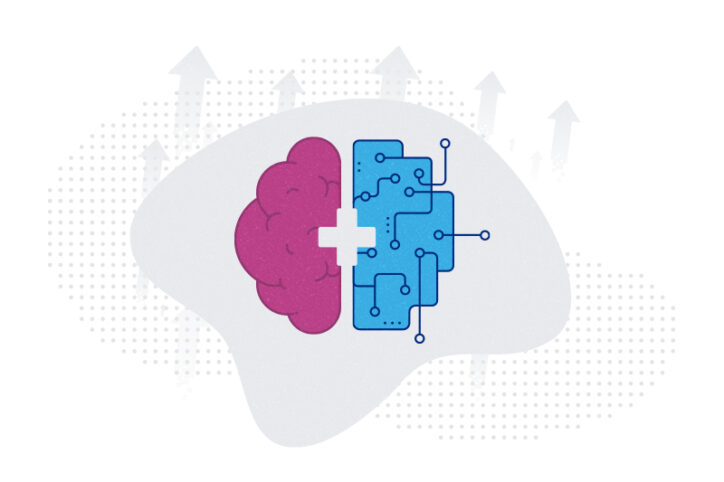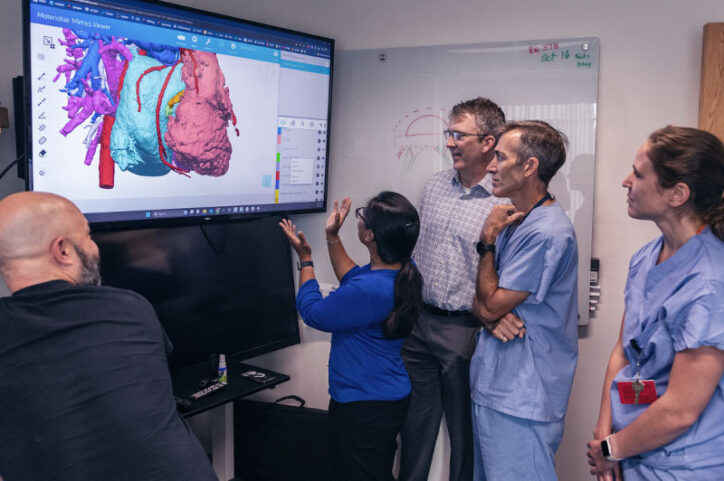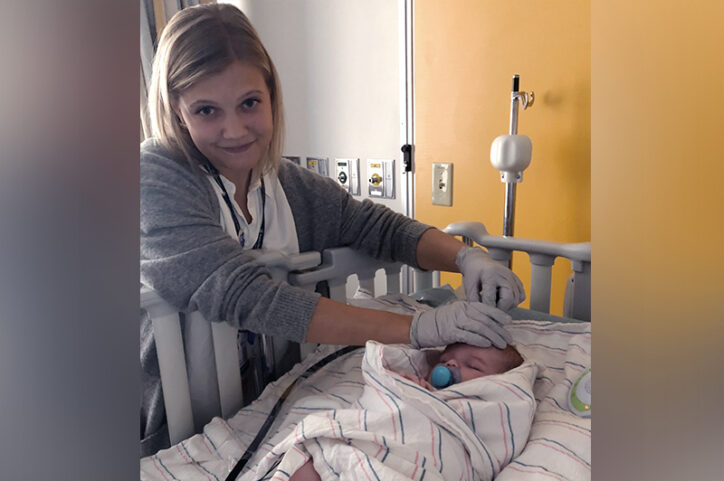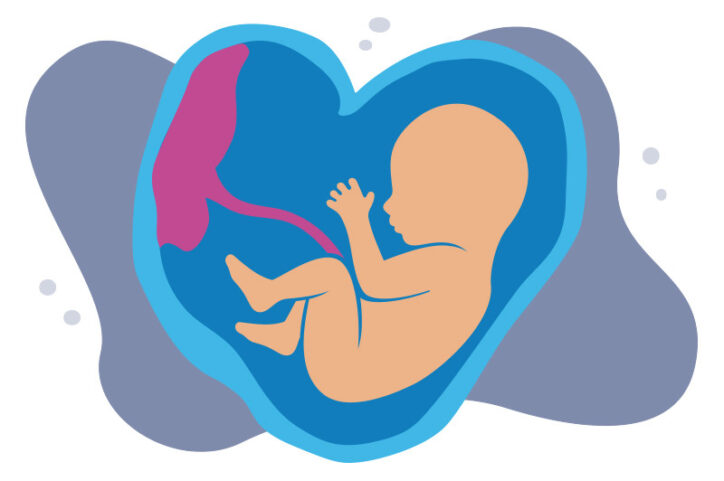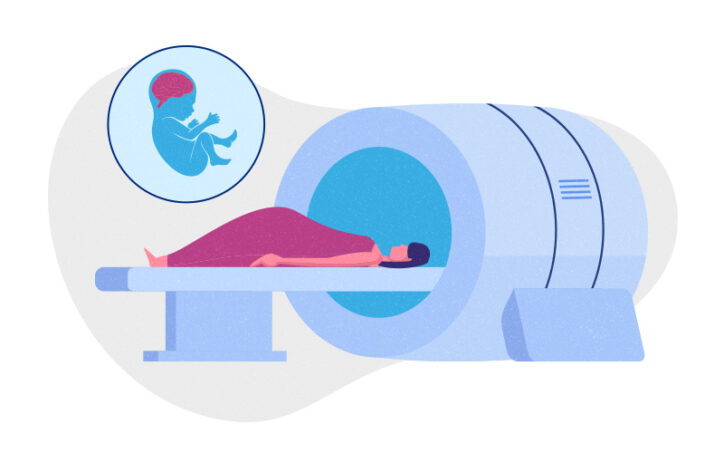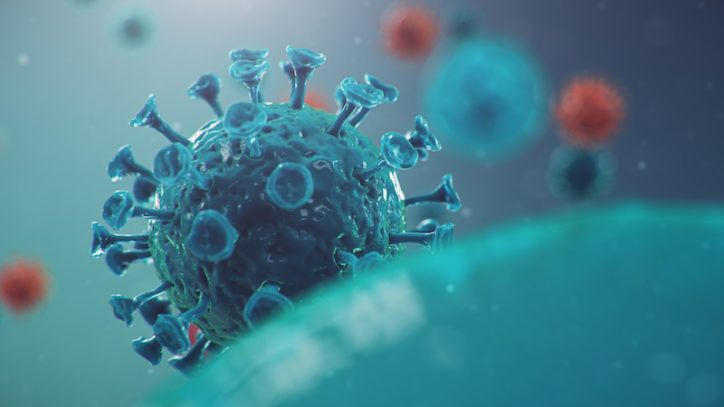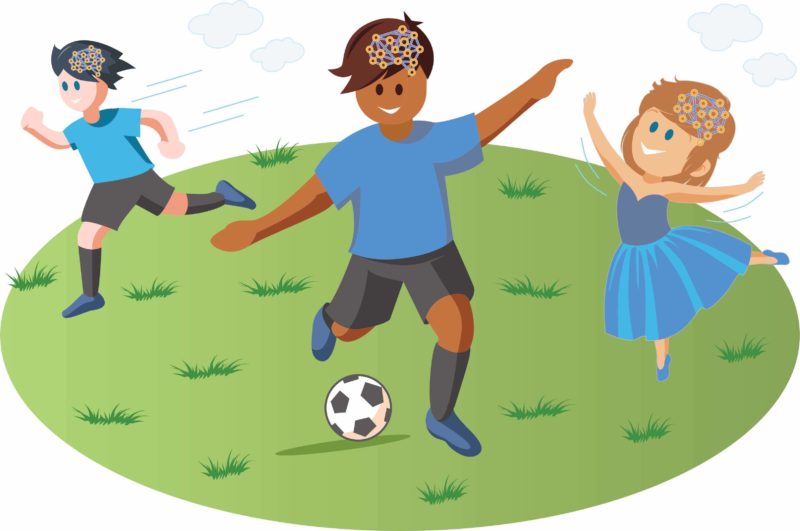Archive for imaging
The hidden burden of solitude: How social withdrawal influences the adolescent brain
Adolescence is a period of social reorientation: a shift from a world centered on parents and family to one shaped by peers, schools, and broader networks. This expansion is critical for healthy development, but it also heightens susceptibility to social stressors. For some, those stressors trigger social withdrawal, a pull toward solitude that may alter ... Read More about The hidden burden of solitude: How social withdrawal influences the adolescent brain
Tagged: adolescent medicine, imaging, neuroscience, research
A new tool could exponentially expand our understanding of bacteria
How do bacteria — harmless ones living in our bodies, or those that cause disease — organize their activities? A new study, combining powerful genomic-scale microscopy with a technical innovation, captured which genes bacteria turn on in different situations and in different spatial environments. The technology, described January 23 in Science, promises to take the ... Read More about A new tool could exponentially expand our understanding of bacteria
Tagged: antibiotics, genetics and genomics, imaging, microbes, microbiome
AI-enabled medical devices are burgeoning, but many haven’t been tested in children
Medical devices that incorporate artificial intelligence and machine learning are proliferating. In 2013, the FDA approved fewer than 10 such devices; by 2023, this number had grown to nearly 250. Devices include software to help interpret radiology images, wearable devices that monitor the heart and flag risks, and devices that analyze brain signals for potential ... Read More about AI-enabled medical devices are burgeoning, but many haven’t been tested in children
From aerospace to the OR: 3D modeling improves surgical planning by revealing details of patients’ hearts
One of the most important tools for complex heart surgeries at Boston Children’s isn’t even in the operating room. For years, heart surgeons couldn’t see the complete extent of a patient’s condition until a procedure started, forcing them to rely on experience, diagnostic imaging, and other information to plan surgery. Now, 3D modeling allows them ... Read More about From aerospace to the OR: 3D modeling improves surgical planning by revealing details of patients’ hearts
Bedside tech predicts newborns’ outcomes after therapeutic hypothermia
Hypoxic-ischemic encephalopathy (HIE), brain injury caused by oxygen deprivation around birth, is a common cause of admission to the neonatal intensive care unit. Therapeutic hypothermia is now becoming the standard treatment to minimize brain injury; cooling the newborn’s head or whole body for three days slows cellular metabolism and allows brain cells to avoid and ... Read More about Bedside tech predicts newborns’ outcomes after therapeutic hypothermia
Tagged: brain injury, imaging, neurology, newborn medicine, nicu
The sooner the better: An argument for fetal MRI before 16 weeks
To date, fetal magnetic resonance imaging (MRI) has been limited to the mid-second or the third trimester of pregnancy. This timing has been based on the belief that MRIs performed too early couldn’t produce diagnostic images because of the small fetal size and normal fetal motion. In addition, although practice guidelines indicate that first-trimester imaging ... Read More about The sooner the better: An argument for fetal MRI before 16 weeks
Fetal brain imaging predicts neurodevelopment of babies with congenital heart disease
Children with congenital heart disease (CHD) often have neurodevelopmental impairment. Until fairly recently, this was thought to stem from complications of cardiac surgery or reduced oxygen supply to the brain due to the heart defect. Now we know that some babies with CHD have impaired brain development in utero because of low oxygen supply to ... Read More about Fetal brain imaging predicts neurodevelopment of babies with congenital heart disease
Sound sleep, sound mind: The importance of sleep for preteens’ developing brains
When your preteen doesn’t get enough sound sleep, some of the signs, like crankiness, are obvious. But some of the effects are more subtle. A large, first-of-its-kind study from Boston Children’s Hospital now shows that too little or poor-quality sleep may prevent the brain from developing strong, efficient connections. “Early adolescence is a critical time ... Read More about Sound sleep, sound mind: The importance of sleep for preteens’ developing brains
Tagged: adolescent medicine, imaging, neuroscience, primary care, sleep, well child care
What makes the Delta variant of COVID-19 so contagious?
The Delta variant of SARS-CoV-2 has swept the planet, becoming the dominant variant within just a few months. A new study from Boston Children’s Hospital, published in Science, explains why Delta spreads so easily and infects people so quickly. It also suggests a more targeted strategy for developing next-generation COVID-19 vaccines and treatments. Last spring, ... Read More about What makes the Delta variant of COVID-19 so contagious?
Regular physical activity linked to more ‘fit’ preteen brains
We know exercise has many health benefits. A new study from Boston Children’s Hospital adds another benefit: Physical activity appears to help organize children’s developing brains. The study, led by Dr. Caterina Stamoulis, analyzed brain imaging data from nearly 6,000 9- and 10-year-olds. It found that physical activity was associated with more efficiently organized, robust, ... Read More about Regular physical activity linked to more ‘fit’ preteen brains




